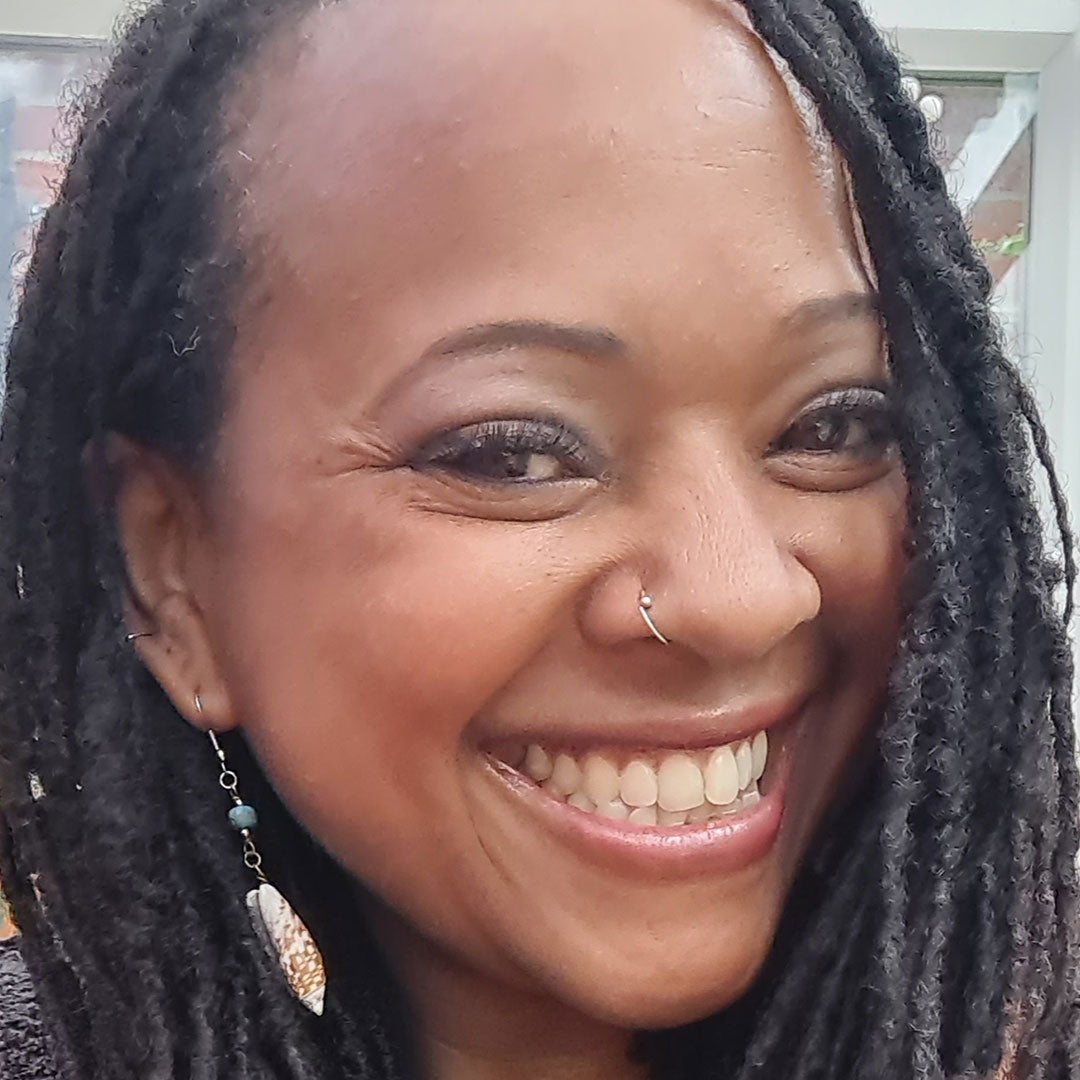With the Writer Spotlight Series, we create a positive image for young girls to refer to by having conversations with different writers and illustrators. This month we have been doing Q&As with many writers, to get to know more about them and their work. Here, we are showcasing all the questions we have asked Cheryl Diane Parkinson, the author of Last Girl In.
Our latest issue is out now

Welcome Cheryl. Tell us a bit about yourself.
I am Caribbean British and live in Norfolk. Passionate about writing, and that age old cliche, I have been writing for as long as I can remember! Started writing poems and short stories and then progressed to novellas and novels. At school, I enjoyed English Literature. I loved the way I could arrange words into poetry or sentences and how you could manipulate them to create what you wanted. This love of language and literature carried me to university, where I studied writing and books up to the PhD level. My interest in Caribbean literature came when I studied it at Master’s Degree level at Warwick University.
I was extremely fortunate to have the esteemed David Dabydeen as my professor - something which I will always be grateful for. He taught me how important representation was, and said that “I have a space in British society”. Explaining that my history is hidden, but it is there. He also showed me the beauty of the sounds of words and, specifically, Caribbean patois. A beauty that I am keen to replicate in my writing. I began writing for children when I had children of my own. They did not like the books that the school provided, and having looked at them, I realised they were quite boring! So I began writing stories that made them the main characters. I published them on a WordPress blog so that my children could access them without me if they wanted, and they did. We even used to illustrate some of them.

Congratulations on your debt, children's book Last Girl In. What was the inspiration behind the story?
The inspiration had to come from cricket and my dad’s love of cricket. My late father, Andsurd, was passionate about the Windies and watched cricket at every opportunity. I remember sitting next to him on the sofa for hours, watching matches, but not really taking in what was happening. I just used to enjoy sitting there with my dad, watching him glued to the television.
There wasn’t much on television that held his attention. It was mainly cricket, and, of course, wrestling. Cricket was something that pulled Caribbean people together. Everyone loved cricket. And everyone watched and played cricket. My dad even taught me how to play when I was around 8. We played in the street in those days. Something that probably couldn’t happen today, but we lived down a quiet London street without traffic. Cricket pulled the community together, and what was even better was that we were good at it. It was a celebration of everything Caribbean. It was a celebration for us.
Kerry-Ann is the main protagonist in Last Girl In. She enjoys cricket, thanks to her grandpa teaching her the sport. It explores girls in sport. What do you hope young readers will take away from this story?
I would hope that the young readers realise they can do anything. That they do not have to allow themselves to be restricted by what others think they can and cannot do. They decide for themselves who they are. I would also hope that they take away the understanding of who we as Caribbean British people are and where we come from. For this knowledge is empowering. We have roots. Most Caribbean people have slavery ancestry. This system stripped us of our identity and culture. It stripped us of our roots. But we have built a new culture and have a new identity, and it firmly rooted us within this identity. Knowledge is power. And so when we meet people who try to affect our self-esteem, telling us who we are and what we cannot do, if we know ourselves, these individuals have no power over us. We control our own destiny.
Throughout the story, there is a strong mention of the culture and traditions of Jamaica. What was the highlight of writing this book?
Jamaica has a special place in my heart. Not only were both my parents born there, but I lived there for a time as a child. When you are a child, you see the world differently to adults. For me, the whole of Jamaica was enthused with magic. From the enormous John Crows, the bullfrogs and the crickets. I even found Anansi spiders fascinating! I loved the heat, the way you could watch the rain approaching - a moving grey sheet in the sky.
I loved when the sunset; the sky was ablaze before the world was plunged into an inky darkness. I loved the magic of fireflies in the bushes, the ghost stories that were told during power cuts and the lyrical language of the people, all tied up in this magical, green and blue gem. It was paradise to me, where anything seemed possible. This is what I tried to create in Last Girl In.
The scenes in Jamaica are what I remember. The heat, the space, the magic and the people. I particularly enjoyed writing the scene where the goat gets hit by a flying cricket ball. This was a true story! One that I enjoyed giving a creative spin. Writing about Nana was also extremely enjoyable. I loved writing about how she was in church, how she wasn’t bothered about the environment because Jesus was going to fix it all, and I loved the way she bossed Kerry-Ann around. This is a character that I am so familiar with and have so much love for that it was fantastic to see her immortalised within the pages of a book.
When did you discover your passion for writing?
I have always written, but it was not until I was 17 that I decided I wanted a career in writing. It was then that I started writing short stories for competitions. Reading and writing go hand in hand and I was always the sort of child who had her nose in a book. I used to read a lot. I wasn’t the sort of child to go out playing with friends, or visiting the cinema, (my mother was a strict Caribbean British mother, this was never an option.)
I was a bookish nerd and extremely proud of it. I wanted to write. And so when my mother bought a house a few roads away from a cemetery, (this was around the time Poltergeist the film came out) I distinctly remember writing my version of the horror, and of course, making myself the protagonist. I created zombies that pushed up through the concrete at the end of my street. A sinkhole that fell away, opening a blazing hot gateway to hell. And my protagonist (a 15-year-old me) was there to save the day. I created stories I wanted to read that were not in my local library. I fell in love with creating worlds. And being able to manipulate them, however I chose. And I was, by then, completely in love with language. Organising words to create tension, or show horror and the grotesque. I would draft and redraft scenes so that they were perfect. And then, I would add a soundtrack of songs that I loved and fitted into my scenes.
You have recently completed a PhD at Birmingham University in Creative Writing. Can you share your experience?
My PhD was challenging. Partly because I was studying while being a full time secondary school teacher and a mother, but I was passionate about what I was writing about. I very much enjoyed the freedom to create whatever narrative I wanted but found towards the end, it was more restrictive. There are few Black creative writers with a PhD in writing, and so my mentor was white. The most frustrating thing was when I was writing about something to do with Caribbean culture and because my mentor didn’t understand it as a white man, they marked it wrong. This happened many times. And so, I had to edit what I wrote to suit my white audience, my white examiners. Which was extremely frustrating. I remember being in tears about it and my mother telling me that once I passed, I will be free to write what I want. And now I do exactly that. As a writer, I dislike being restricted to what others think I should write about, or have my style changed to suit others. What I write and how I write expresses me and what I think is important. My PhD taught me the logistics of how to write, but it also showed me the importance of self expression as an artist - and I consider writing an art form and myself, an artist.
As difficult as my PhD was, my graduation was emotive. I was allowed just two guests, which of course were two of my daughters, Jessica and Amelia. The pride I felt walking around the campus in my gown was something that I will never forget and the look of sheer elation on my daughters' faces was priceless. I also noticed that I was the only black female PhD graduate in my group. I remember someone in the Ladies asking me about my experience of studying for a PhD, and I told her how challenging and exhausting it was. But this is what I expect when studying at this level. You expect it to be challenging. It is overcoming these challenges that makes graduating all the sweeter. And you learn not just more about your craft, but about the person you are.The self growth during a PhD is amazing. It is an experience that has helped create the person I am today. And I very much like who I have become.
About the author
Cheryl Diane Parkinson is a British Caribbean writer and journalist. She has taught for 17 years; imparting her love of English Literature to GCSE and A Level students and she recently completed a PhD in Creative Writing at Birmingham University. Cheryl has published two novels for adults and has also written also for ByLine Times, The Voice Online, and Fem Magazine. Last Girl In is her first children’s book.


